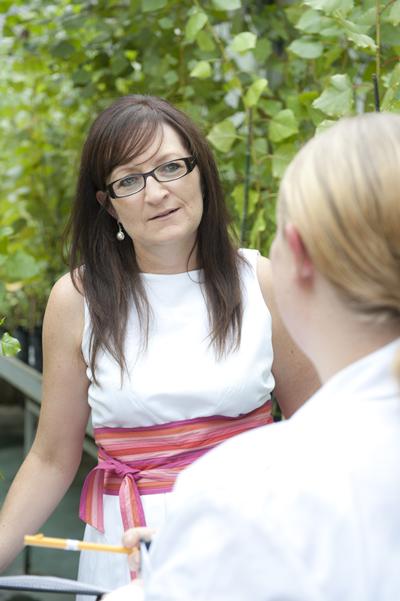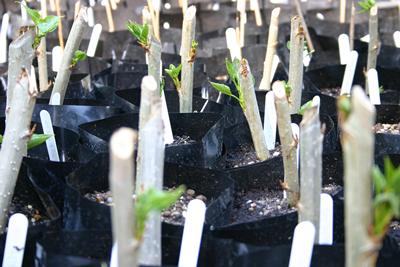Beating the drought. Southampton biological scientists lead the development of new crops

Professor Gail Taylor, Director of Research for Biological Sciences at the University of Southampton, is leading a major international research project to identify and develop new bio-energy plants that can thrive in countries suffering from drought and water shortages.
The 22 partner consortium has received a €11.6 million EU grant to address the issue of crop productivity in a future climate, where water shortages may become increasingly common.
During the drought of 2003, agricultural productivity across Europe fell by over 30 per cent. This research brings together academics, crop breeders and commercial partners to come up with new plants which can cope with such conditions. They will use the latest technologies now available for DNA genome sequencing to develop non-food crops for energy use including poplar, miscanthus and giant reed.

"Our primary aim is to characterise the vast amount of DNA variation in these under-utilised crops and harness this to produce better crops," explains Gail. "Even five years ago this project wouldn't have been possible as DNA sequencing was relatively expensive. Now we are sequencing the genome of more than 50 poplar trees, sampled from across contrasting sites in Europe, including droughted southern sites. From this we can identify small changes that might give us a clue to survival in stressful environments."
Related Staff Member
Other University of Southampton sites
Links to external websites
- EU project fielding crops for fuels
- Southampton to help develop new crops for water-stressed environments
- University of Southampton to develop crops that use less water
- Southampton to help develop new crops for water-stressed environments
- Research Into Water-Stressed Bioenergy Crops
The University cannot accept responsibility for external websites.
